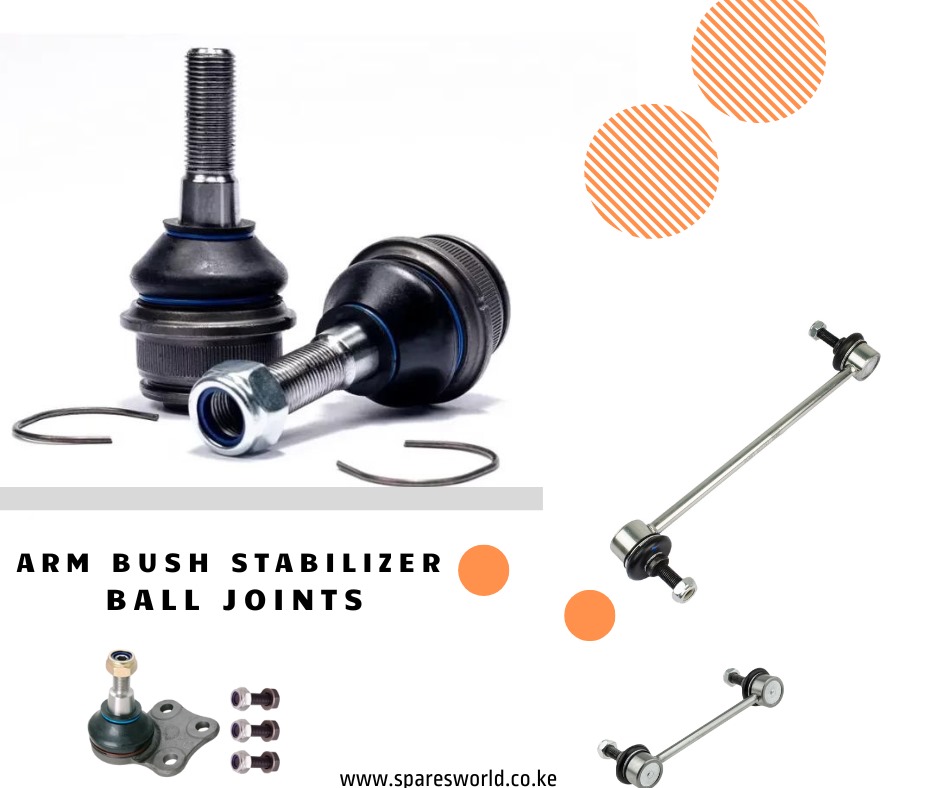The Importance of Regular Suspension Maintenance

Discover how regular suspension maintenance can drastically improve your vehicle’s performance and safety.
Understanding Vehicle Suspension: What It Is and How It Works
The vehicle's suspension system is a complex network of components designed to absorb and dampen the shock from the road. It consists of springs, shock absorbers, struts, control arms, and ball joints, among other parts, all working in harmony to provide a smooth ride. The primary function of the suspension system is to improve the car's handling and braking for safety and comfort by keeping the wheels in contact with the road surface as consistently as possible.
Understanding the intricacies of your vehicle's suspension system can help you recognize when maintenance is due. An optimally functioning suspension system ensures that the tires have maximum contact with the road, providing the grip needed for safe maneuvering and braking. It also minimizes wear and tear on other vehicle components, contributing to a longer vehicle lifespan.
The Impact of Neglected Suspension Systems on Vehicle Performance
Neglecting the suspension system can lead to a variety of problems that affect the overall performance of your vehicle. Poor suspension can cause uneven tire wear, reduced handling and braking efficiency, and an uncomfortable ride. Over time, a neglected suspension system can also lead to increased stress on the chassis and other vehicle components, potentially resulting in costly repairs.
In addition to the mechanical implications, a faulty suspension system can compromise safety. It can cause the vehicle to handle unpredictably, especially in adverse driving conditions or when evasive maneuvers are necessary. Regular checks and maintenance can prevent these problems and help ensure your vehicle operates at its best.
Key Benefits of Regular Suspension Maintenance
Regular suspension maintenance offers several benefits that extend beyond a smooth ride. It can enhance road safety by ensuring better control and stability of the vehicle, especially during turns, stops, and on uneven surfaces. It also contributes to improved comfort by absorbing bumps and vibrations, making long journeys more pleasant for the driver and passengers alike.
Additionally, maintaining your suspension system can help preserve the value of your vehicle and reduce the likelihood of expensive repairs. By catching issues early, such as worn shocks or loose components, you can avoid more significant damage that can result from component failure.
How Often Should You Service Your Vehicle’s Suspension?
The frequency of suspension service can vary based on the vehicle make, model, driving habits, and the condition of the roads you typically travel on. However, most automotive experts recommend having your suspension checked at least once a year or every 12,000 miles. Certain signs, such as uneven tire wear, noises during turns, or a rough ride, can indicate the need for a more immediate inspection.
Consult your vehicle's owner manual for specific recommendations regarding suspension maintenance. Remember, keeping up with regular checks can help identify potential problems before they become severe, saving you time and money in the long run.
DIY Versus Professional Suspension Maintenance: What You Need to Know
While some suspension maintenance tasks can be undertaken by a skilled DIY enthusiast, such as inspecting for visible damage or wear, professional servicing is often necessary to ensure a comprehensive check and repair. Professionals have the tools and expertise to diagnose and fix complex suspension issues that might be beyond the scope of DIY.
If you're not experienced in car repair and maintenance, it's advisable to leave suspension work to the professionals. They can ensure that all components are in good working order and correctly aligned, which is critical for the safety and longevity of your vehicle.
Drop us a message from our facebook page or Chat us using the widget on the right to order suspension parts for your car

 Loading..
Loading..